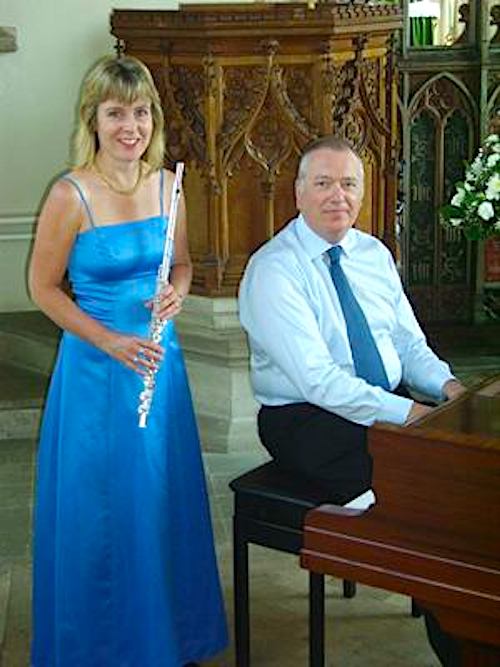
Trunch Concerts 2014 – Music in an historic Norfolk Church

SATURDAY, 20th SEPTEMBER 2014 at 7.30 pm
Norfolk Winds (flute, oboe, clarinet, bassoon) with David Morgan (piano)
Popular flautist, Anna Hopkins, with friends playing oboe, clarinet and bassoon, perform
Danzi: Piano Quintet in D op 54
Madeleine Dring: Trio
Glinka: Trio Pathetique
Bach, Buxtehude, Jacob
Norfolk Winds, formed in 2010, is an ensemble comprising four of the most experienced and highly qualified woodwind players in the county, including the much-loved solo recitalist Anna Hopkins, flute. They often perform with the pianist and harpsichordist, David Morgan, extending the range of repertoire for combinations of flute, oboe, clarinet and bassoon, and already several Norfolk-based and European-based composers have written music especially for the group. The group sometimes performs in smaller combinations, further widening their range of repertoire. Norfolk Winds have enjoyed some very creditable reviews in their public concerts. They perform both in high-profile concert series and for fundraising events.
David Morgan studied composition with Reginald Smith-Brindle and William Mathias and organ with Brian Runnet and Noel Rawsthorne. He is an equally accomplished pianist, turning his talents to a wide range of solo and ensemble repertoire. Since retiring as Programme Manager for Performing Arts at City College Norwich in 2006 he has been the regular harpsichord continuo player for Norwich Baroque, too.
Mikhail Glinka is known as ‘the father of Russian Music’. The Trio Pathetique was written at the prime of his manhood (just before he became ‘father’!) and reflects the drama and lyricism of the famous Italian opera houses, where he was honing his skills in composition before returning to St Petersburg to compose his great operas For the Life of a Czar and Ruslan & Ludmilla.
Madeleine Dring’s music is described neatly on Wikipedia: ’ A student of Herbert Howells, Gordon Jacob and occasionally Ralph Vaughan Williams, Madeleine Dring’s style is typically light and unpretentious. She admired the idiomatic and rhythmically vibrant writing of Francis Poulenc, which is echoed in her works. Her harmonizations are often jazzy; her writing has often been compared to that of George Gershwin.’ Her husband was the principal oboist of the LSO and her writing for winds in this trio combination is quite wonderful.
Franz Danzi was a contemporary of Beethoven. His Op. 54 quintet reflects a strong influence of the music of Mozart and Weber. Working in Mannheim and Munich, he had access to the finest wind players of his age. In this joyous ‘concerto’ for piano, the wind ‘backing’ is subtle and delicate.